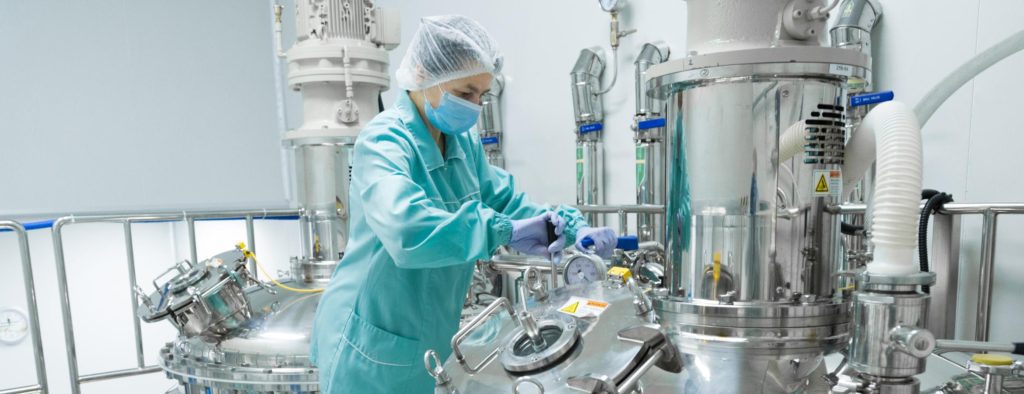To ensure product and service safety, quality, and the integrity of throughput in manufacturing, some facilities require high-temperature air filtration. Process and oven environments, such as food processing, pharmaceutical, automotive and research facilities, require safe, high-temperature air filtration using air filters designed specifically for high heat use.
Why Use High-Temperature Air Filters?
Many standard HVAC air filters are not specifically designed to operate at high-temperatures. At these increased levels of heat, many HVAC air filters can experience effects such as:
(1) Particle shedding: This occurs when particles of the air filtration media, and contaminants, are released into the air. These particles can then be inhaled by humans, where they sometimes become lodged and can cause long-term lung issues.
Engineered Filtration Systems’ (EFS) high-temperature filter media is made of heat-resistant fiberglass to eliminate particle shedding.
(2) Diminished adhesive and binder strength: A reduction in the strength of adhesives and binders in an air filter not designed specifically for high-temperatures limits the drop-in pressure to which it can safely be subjected.
(3) Leakages: Due to cracks in filter components at high-temperatures, leakage is possible without high-temperature air filters.
Efficient, high-temperature air filtration requires either a reduction in ramping rate, modified seals, modifying the structure of the equipment and air stream, or the use of a high-temperature air filter.
Failure to utilize appropriate high-temperature air filters for high heat HVAC systems may cause hazardous conditions for operators and contamination of processes. At best, filter performance may be substandard without an air filter designed specifically for high-temperatures.
What Industries Utilize High-Temperature Air Filters?
High-temperature air filtration is primarily needed in the pharmaceutical sector. Medical device manufacturers, food processing plants, semiconductor, microelectronic and automotive facilities also utilize high-temperature, air filters.
The pharmaceutical industry, for example, is subject to stringent guidelines regarding the risk of microbial and particulate contamination. In depyrogenation and dry heat sterilization systems, pharmaceutical companies must use high-temperature air filtration to minimize life-threatening risks to patients in manufacturing.
Life science research and food processing requires high-temperature air filtration for maintenance of clean and sterile operating equipment and environments. Semiconductor and microelectronic facilities use high-temperature air filters for curing, annealing, and holding of electronics and components.
Any industrial or commercial facility with equipment operating higher than near-ambient air temperature can benefit from using high-temperature air filters. Often, high-temperature air filters must be used due to the design of the equipment and operating processes. High-temperature air filters by EFS maintain their structural and functional integrity, even in the hottest of environments.
Conclusion
Facilities operating at temperatures significantly higher than the ambient air often require high-temperature air filters. Without an air filter designed especially for high-heat environments, the safety of the environment can be compromised, and facilities may not meet stringent regulatory requirements.
High-temperature, commercial air filters by EFS are designed to withstand the hottest of environments, up to 700 degrees Fahrenheit, ensuring maximum high-temperature air filtration that meets and exceeds standards.
For more information on high-temperature air filtration solutions, contact EFS online. Or call us at 1-800-796-4337.

